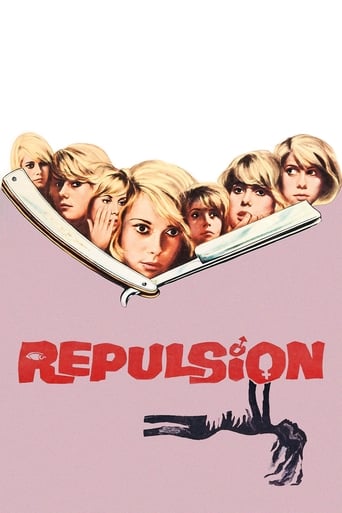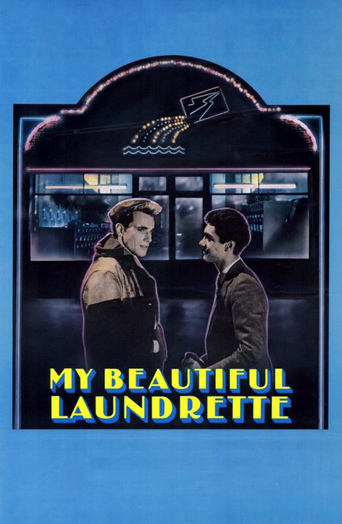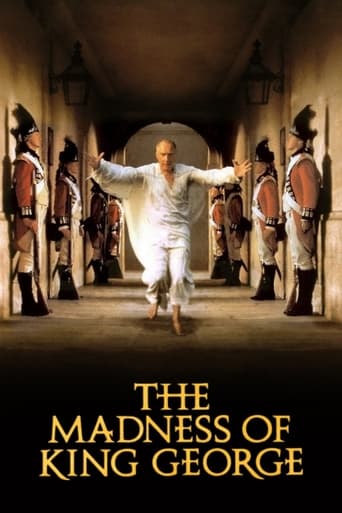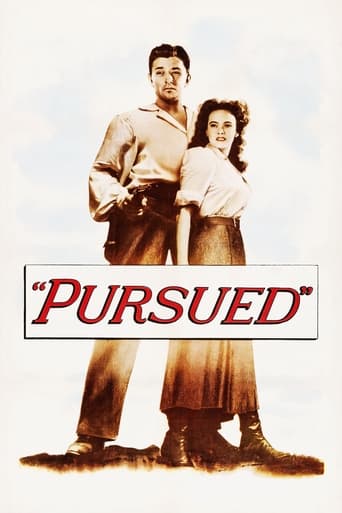


David and Lisa
Teenager David Clemens develops a hysterical fear that he will die if he comes into physical contact with another person. Perturbed, David's overbearing mother places him in a home for mentally disturbed young people, but David remains withdrawn from the other patients and his psychiatrist. Over time, however, David grows interested in 15-year-old Lisa, who suffers from multiple personalities – one who can only speak in rhyme, and the other, a mute.
-
- Cast:
- Keir Dullea , Janet Margolin , Howard Da Silva , Neva Patterson , Clifton James , Jaime Sánchez , Karen Lynn Gorney


Similar titles










Reviews
Sorry, this movie sucks
hyped garbage
It's fun, it's light, [but] it has a hard time when its tries to get heavy.
It’s not bad or unwatchable but despite the amplitude of the spectacle, the end result is underwhelming.
Keir Dullea plays David, a new resident at a psychiatric treatment center, who becomes agitated when he is touched; Janet Margolin is Lisa, a schizophrenic who alternately speaks in rhymes or not at all. Director Frank Perry's drama about mental illness and the loving friendship that develops between these two disturbed young people was a surprise hit in 1962; independently-produced and distributed, the profits allowed Perry and his screenwriter wife, Eleanor Perry, to continue making acclaimed films together until the start of the new decade. It's not a very courageous film, it isn't hard-hitting and it doesn't break new ground, but as a dramatic acting showcase it delivers. Dullea is wonderful; he and Perry do not let the hysterics inherent in the role of David to dominate Dullea's performance (he carries the movie). As David's psychiatrist, Howard Da Silva is also strong, turning what might otherwise be a thankless role--the proverbial doctor-friend--into something much more: he's wise and caring, but isn't showy about it. The film is an entertainment the way TV dramas on "Playhouse 90" were entertainments. It shows us sick behavior and makes its points about society's attitude to that behavior, but there's no current of life underneath the film. "David and Lisa" isn't grossly melodramatic, which is a plus, yet Perry is too controlled within this environment. The picture is in black-and-white, and yet you can sense a rosy hue around it. ** from ****
The movie's very un-Hollywoodish nature created considerable buzz at the time of release. Audiences weren't used to a documentary-like approach to such tricky subject matter. Then too, the production team and cast were not exactly household names. I expect the movie's success exceeded the Perry's fondest dreams. Happily, it gave them encouragement to continue independent production of offbeat subjects.The trick here is to have mental illness treated in a detached yet sensitive way. At the same time, David's (Dullea) ice-cold demeanor is not apt to win audience allegiance at the outset. We're never told exactly what his problem is, which is the way it should be, but the severe emotional repression evidently has to do with a cold, unfeeling mother (Patterson). Also, not wanting to be 'touched' looks like a metaphor for keeping his feelings hidden not only from others, but from himself as well. In that difficult role, newcomer Dullea is totally convincing— a handsome, pale-eyed iceberg.As Lisa, the unknown Margolin is wonderfully expressive, her face literally lighting up as David shares her secret language of rhyming. She is so winsome, it's not surprising that even David takes notice. We know less about Lisa than about David, but obviously the statues she embraces represent key absences in her life. When the two finally touch, a moving moment rare for any movie is reached. At the same time, note how the therapist Dr. Swinford (deSilva) is portrayed more as a facilitator than as an analyst. He provides the environment in which the two can reach each other in ways that his expertise cannot. And he's wise enough to know that. I don't know what the Perry's expected from their two principal actors, but what they got is almost sublime, and a big reason why I think audiences responded so enthusiastically. Too bad the film has slipped into obscurity since that initial reception. It certainly deserves rediscovery, especially on TCM.
Poor Mrs. Clemens! One more castrating mom to add to our culture's most wanted list. She's wanted for turning her son, David, into an "obsessive-compulsive." By depriving him of love, pushing him towards success and achievement; by being more dominant than her milk toast husband; by being sexy but asexual, beautiful but cold, she must suffer the hostility of not only her son, but to a lesser extent, her husband, and her son's doctors--add too her son's fellow "inmate," a sex-crazed teenager, who has "knocked up 13 girls," and whose mom is a hooker.Anyway, David is deathly afraid of time and death, and he associates these with his upper class mother. Because she is unfeeling, non-communicative, and non-protective, touch itself can kill him. If he is emotionless, it's because his mother is. If he is totally shut off to the world, than his perfectionist mom's to blame. If he cannot develop, it is, in Freudian fashion, because his mother lords it over his father, thus making David mom-dependent, and his father, David's way into the larger world, "nothing but a marshmallow." So it is that Mrs. Clemens is both ice and earth, remote and engulfing, unloving and clinging--to the boy she gave birth to. It's mother-time and mother-love which make touch terrorizing to David. And his outright expressed hatred of her is viewed by him as a step to healing: "parents don't like you when you're sick, and when your well, either." Mrs. Clemens, simply put, is too much mother, who mothers too little.The true mother is the woman holding her son in the railway station, on the night that David escapes his toxic parents' home. This mother's love is unconditional, sensual, and giving and David claims her as his very own mother. With her as a mom he might in Dr. Swinford's words "take a chance and open up and let love in." Interesting how a scene of blissful maternity can jump start David's recovery.Lisa, his "patient" and dear female friend is also a prop to his wellness. Lisa, unlike David, has no history, no mother to blame for her multiple personalities. She is free-floating, adorable, innocent, child-like (several years younger than David) and earthy in her dark features. She's capable of a kind of psychic communication, rhyme-speech, and expressed intimacy. She is, in other words, a blessing to David. She's a "pearl of a girl," in his words--words that awaken sensual awareness in both--because she is spontaneous and vulnerable and serves as David's inner self or soul. One of her telling rhymes is "rhymes, time, slime" which seems to point to David's second birth, and to herself as one of its mediators.Dr. Swinford or "Alan" to his "students" or "inmates" is another of David's safe mediators. He fathers David's development through a kind of liberal, humanistic, "do your own thing" approach. Any constraint is suspect, and creativity is the ultimate form of therapy at his private institution. He is satisfactory to David despite the fact that he passively absorbs more hostility from him than does his hapless father from his mother. His non-judgmental guidance, in a sense, seems to make him a third female kind of figure in David's recovery, but Dr Swinford, in his professional capacity---he's a psychiatrist and a more convincing father figure whose role and profession he will follow--also serves as model for David's autonomy.That autonomy or rebirth is equivalent to recovery or David's integration into love, authority, and society. This means, above all else, a transcendence of his mother and his worldly birth. But doesn't his rejection of his mother include his rejection of "rhyme, time, slime?" So how will he accept the world without accepting time? Perhaps because he's discovered male time--and male identity (his terror of freak shows and the Geroge/Georgina character). This newly discovered order is controlled, ordered, authorized-- the very stuff that he has abhorred and ridiculed to date, but which now can be viewed differently from a select identity. He has entered Freud's history (the clock is fixed) and left his mother's behind.The towering museum columns between which the final scene is shot is proof of his elevation into manhood. The tall blond young man walks off into the morning Light (why did it take him all night to reach the museum?) having dispelled the darkness, hand and hand with his little brown-eyed girl. Isn't it ironic that in the mutual rescue scene at the museum that it is David who allows Lisa to grasp his hand when--his rejection of her in the piano room is why she escaped and is endangered--she should be allowing him to touch her.
Very quiet drama about two mentally disturbed people, David (Keir Dullea) and Lisa (Janet Margolin), helping each other out to cure themselves.This was one of the art films of the early 60s---it was made independently, shot in stark black & white, has threadbare sets, poor lighting and lousy sound. Still, this was a big hit. It was a very sensitively handled movie of a then touchy subject (mental illness). And Dullea gives an excellent performance as David. Margolin is also good as Lisa. This movie was supposed to "make" both of them--sadly, it didn't.It's all well done but I can't say I liked it. There's absolutely no edge to the story or characters at all. This movie goes out of its way to make sure it won't offend anyone and, unfortunately, this makes for a very dull movie. Still, for its time, this was groundbreaking. Worth seeing for the acting alone.Hard to believe that director Frank Perry later on made the camp classics "Mommie Dearest" and "Monsignor"!










